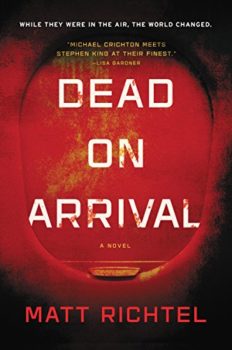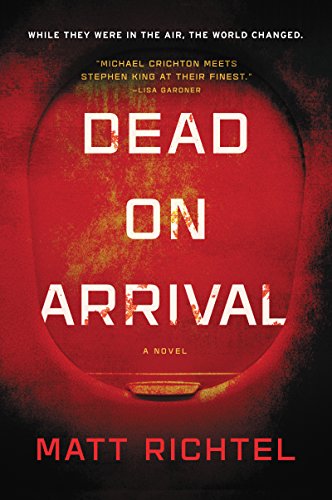
Just imagine. You’ve landed at a small regional airport somewhere in the Rocky Mountains. The world has gone silent. There’s nothing but static on every channel on the radio. The body of a man in a jumpsuit lies sprawled on the tarmac, and human figures inside the terminal are motionless. Is this beginning of a dystopian tale? Will people everywhere be victims of a mysterious pandemic? Or is something else happening here?
Estimated reading time: 3 minutes
In Matt Richtel’s debut novel, Dead on Arrival, something else is definitely going on. As will quickly become apparent, what appears to be a pandemic is somehow related to a top-secret project at Google. There, a small team of brilliant engineers is exploring the connection between information overload, memory, and attention. Has the experiment gone awry? We’ll find out.
Neurology meets high-tech
Dead on Arrival is loosely based on contemporary neurological research that is turning up disturbing findings. The information overload to which so many of us are subject through our mobile devices and social media is a problem on many levels.
- First, the information glut that keeps us glued to our screens can impair working (short-term) memory.
- Second, information overload is causing many of us to suffer from decision fatigue.
- Third, as The Economist has noted, “information overload can make people feel anxious and powerless: scientists have discovered that multitaskers produce more stress hormones.”
- Lastly, our marriage with social media may be driving us apart, causing us to drift ever closer to political extremes (although some studies question this assertion).
Matt Richtel has built his novel around these questions, speculating that the potential exists for electronic media to impact us in far worse ways. When neurology meets high-tech, the results aren’t all likely to be pretty.
Dead on Arrival by Matt Richtel (2017) 309 pages ★★★★☆
About the author
Matt Richtel won a Pulitzer Prize for a series of articles at the New York Times about distracted driving. He later wrote a bestselling nonfiction book on the topic, A Deadly Wandering. Before writing Dead on Arrival, Richtel studied the impact on the human brain of living with “a deluge of data” from digital devices. He shared the thought that children’s brains are developing differently from those of their parents and others of older generations. Richtel, a graduate from the University of California, Berkeley, holds a Master’s degree from the Columbia School of Journalism.
For related reading
For more good reading, check out:
- These novels won both Hugo and Nebula Awards
- The ultimate guide to the all-time best science fiction novels
- 10 top science fiction novels
- The top 10 dystopian novels
- Ten new science fiction authors worth reading now
And you can always find my most popular reviews, and the most recent ones, on the Home Page.


























